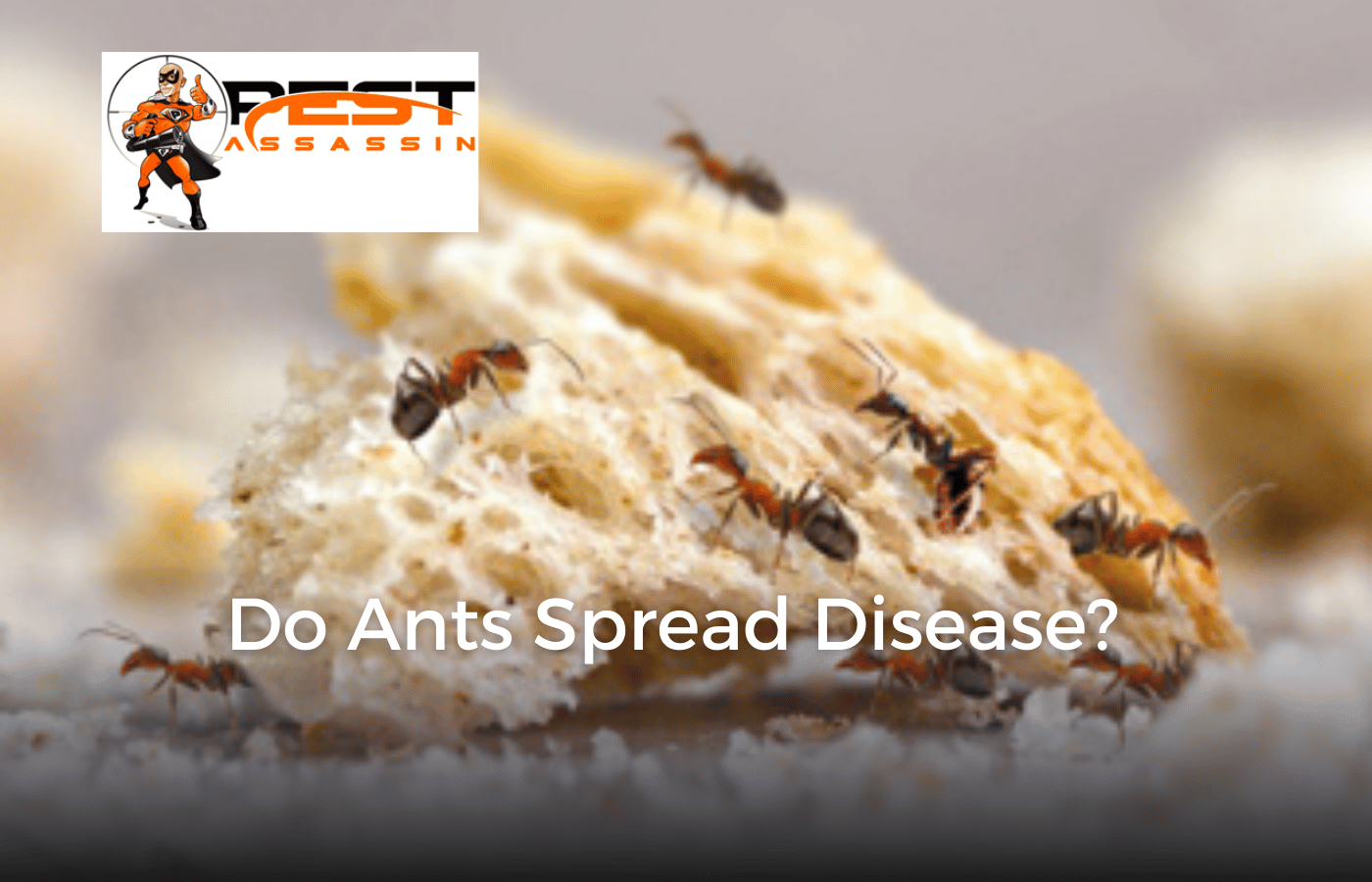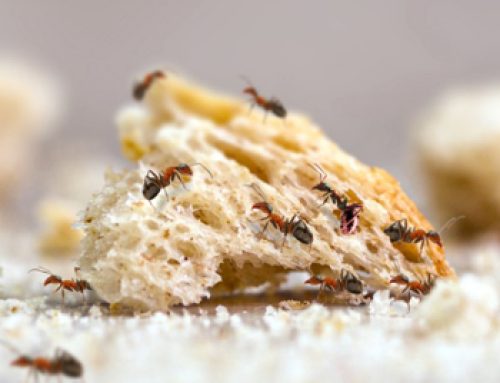Kitchens, bathrooms, and bedrooms are often invaded by ants. They may seem harmless, but their presence can lead to health problems. Many individuals wonder if ants can spread diseases and if they pose a threat to their family. Answering in the affirmative is the prompt response. Food and surfaces can become contaminated by bacteria that ants can carry and spread. This can cause sickness, particularly in homes with elderly people, pets, or children. It’s critical to comprehend the dangers ants present to the house in order to keep your living space healthy.

In What Ways Do Ants Spread Illness?
Ants can be found walking through a range of surfaces, such as drains, trash, and animal waste. They get bacteria and infections on their legs and bodies while traveling. Ants that enter your home can leave these germs on food, floors, and countertops. This could lead to the spread of harmful bacteria like Salmonella, E. coli, and Streptococcus.
Common Illnesses Connected to Ants
Although they do not directly cause disease, ants may act as carriers of pathogenic bacteria. The following are some typical health hazards linked to ants:
1. Contamination of food
Foods that are starchy, greasy, and sweet appeal to ants. Food poisoning may result from the bacteria they can introduce when they crawl over food. Among the signs of a foodborne illness are diarrhea, vomiting, and nausea.
2. Issues with the Respiratory System
Because they spread mold spores, some ants, like carpenter ants, can cause respiratory issues. Their nesting in moist or decaying wood can release mold into the air, which can exacerbate allergies or asthma.
3. Infections of the skin
Fire ants can sting and bite, which can result in unpleasant side effects. If these bites are not appropriately treated, they may occasionally result in infections. Further skin problems could result from introducing bacteria by scratching the afflicted area.
High-Risk Ant Activity Areas
Ants are more likely to transmit bacteria in places that are warm, moist, and food-rich. Ants most frequently transmit disease in bathrooms, kitchens, and pantries. Food containers should be cleaned and sealed on a regular basis to lower the risk.
How to Stop Ants from Spreading Illnesses
Maintain Clean Surfaces
Clean kitchen floors, sinks, and counters on a regular basis. In addition to eliminating food particles, this will lessen the likelihood of drawing ants.
Properly seal food
Food should be stored in airtight containers. Ants can be drawn to spills or even tiny crumbs. Keeping food sealed restricts their access.
Take Care of Entry Points
Close gaps and crevices around windows, doors, and walls to keep ants out. Ants are tiny and can get in through even the smallest gaps.
When to Make a Help Call
Professional ant control may be required if, in spite of your best efforts, ants still enter your home. To keep your house free of ants and the illnesses they can spread, experts can find nests and deal with the underlying cause of the issue.
The Unknown Health Risks Ants May Pose Inside
Despite their small size, ants have the potential to spread disease, so it’s important to consider this. Ants have the ability to bring dangerous bacteria into homes by contaminating food and surfaces. Cleaning, sealing food, and obstructing entryways are all easy ways to lower the risk. The best way to safeguard the health of your family is to get professional assistance if the infestation is persistent.
Defend your family and house from dangerous ants right now! Expert ant control is provided by Pest Assassin to get rid of infestations at their origin. Avoid allowing ants to spread bacteria throughout your house by getting in touch with Pest Assassin right away for dependable, prompt service!


